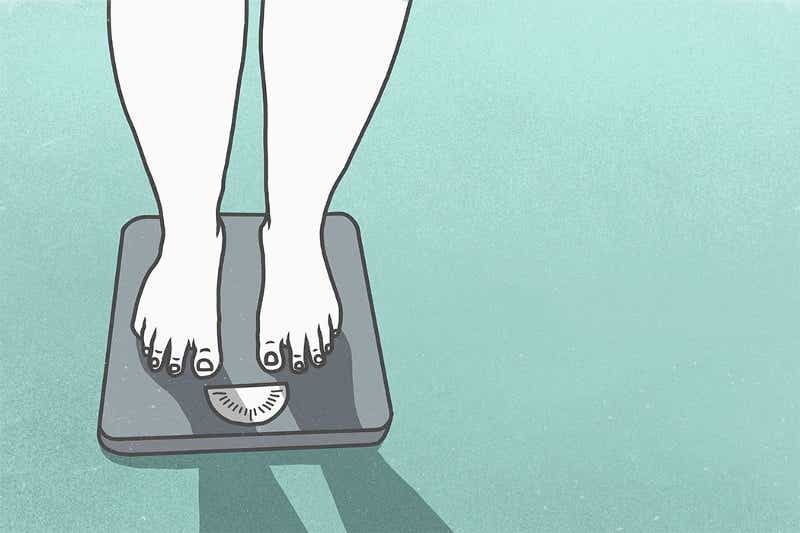The pandemic has undoubtedly disrupted daily life, and many Americans have found themselves carrying around some extra pounds. Dr. Rebecca Brightman, a New York-based gynecologist, believes this isn’t a coincidence. She said the new normal of working from home and sheltering in place have resulted in quarantine weight gain, or as it’s become known as, “the Covid 15.”
“In our day to day lives, we move around a lot. Whether it is commuting to the office, running errands, going to the gym, using stairs more often, these activities all burn calories,” she told Wake-Up Call.
In addition to eating and drinking more than normal, Brightman also pointed to the role that hormones can play in potentially gaining weight. She noted that women tend to gain more weight around their midsection as they age — and the stress of living under quarantine doesn’t help.
Brightman offered us some tips on how to fight that spare tire below.
Wake-Up Call: Dr. Brightman — HELP! I seem to be six months pregnant with Covid! I have a serious spare tire. Are you hearing this from a lot of your patients?
Rebecca C. Brightman, M.D.: I hear this from my patients every day!! The Covid 15! Many who WFH in very forgiving athleisure wear. Spandex is very stretchy and the home office is usually in close proximity to the kitchen. Many are unaware of their expanding waistlines as a result. I too lived in my workout wear, but performed a jean “not gene” test every few days just to make sure my jeans still fit!
Now granted, I’ve been enjoying some delicious meals. But I used to have a waist! Why is everything migrating to my belly?
As women age, they tend to gain weight in their midsection or belly. During the height of the pandemic, many of us were at home, not as active, eating, and drinking so much more. The increased caloric intake coupled with fewer activity results in weight gain, particularly in the midsection. Some people are “stress eaters” and aren’t even aware of extra snacking, increased drinking, both of which contribute to weight gain.
Also, so many people stopped exercising regularly, using the excuse that the gym was closed. Streaming platforms really work, though do require motivation and time.
Is this particularly problematic for those of us who are a bit more…um, mature?
As we age, metabolism slows, so in order to maintain one’s weight, we need to maintain an active lifestyle and pay attention to the quality and quantity of the food we consume. Those who could once “get away” with eating everything they wanted, frequently are the first to find that they need to change their habits. If someone has a healthy lifestyle and participates in a regular exercise routine, maintaining weight will be so much easier.
What about stress hormones like cortisol that might have increased during this time. What impact do these have on our bodies?
The stress hormone, cortisol, is released by the adrenal glands which are small glands that sit on top of our kidneys. During times of stress (such as a pandemic) cortisol levels may increase. An increase in cortisol can increase appetite and cause insulin resistance. This results in higher blood sugar levels and fat deposition, particularly visceral fat, which is belly fat as well as the fat that surrounds vital organs. This type of fat deposition correlates with an increase in cardiovascular disease, type 2 diabetes, and other medical conditions.
What kind of exercises should we be doing to address this issue?
Maintaining a regular exercise routine that includes cardio as well as weight-bearing exercise. Individuals with greater lean body mass (more muscle) and less fat, will burn more calories. So, it is a combination of both. Ideally 30 minutes of exercise 5 days a week. Both cardio and working out with weights, or resistance training.
Exercise and relaxation techniques as well as a good night’s sleep will decrease cortisol release and facilitate metabolism.
This interview has been edited and condensed.
This article originally appeared in Medium.









